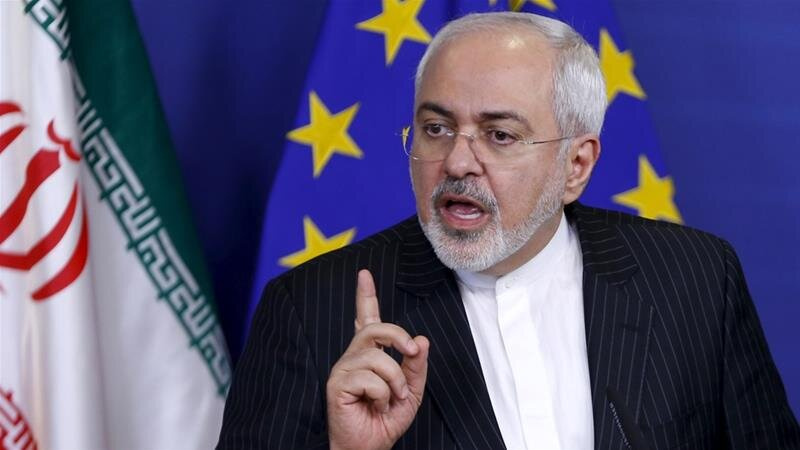No sanctions will be restored on September 20, Zarif says

U.S. Secretary of State Mike Pompeo has said many times that, no matter what members of the UN Security Council would do, the international sanctions will return on September 20.
“If any member of the UN Security Council introduces a resolution to continue sanctions relief, the U.S. will oppose it. If no resolution is introduced, the sanctions on Iran will still return on September 20. That’s how UNSCR 2231 works,” Tweeted Pompeo on August 27, a week after he traveled to New York to “notify” the Security Council of Iran’s “significant non-performance” of its commitments under the 2015 nuclear deal, which is officially known as the Joint Comprehensive Plan of Action (JCPOA).
Pompeo also attached to his tweet a photo of a paragraph of UN Security Council Resolution 2231 explaining how the UN sanctions on Iran will return if a party to the JCPOA notifies the Council of Iran’s non-performance.
However, Zarif said Pompeo was wrong to think that the UN sanctions on Iran would be reimposed on September 20.
“Wrong again, Pompeo. Nothing new happens on 9/20. Just read Resolution 2231. Bolton—who convinced the boss to order you to ‘CEASE U.S. participation’—did. In his words: Process is not ‘simple’, automatic or snappy. But intentionally ‘complex & lengthy’. U.S. is NOT a participant,” Zarif tweeted on Thursday.
On August 20, the U.S. submitted a notification to the Security Council calling for the restoration of the international sanctions on Iran based on Resolution 2231, which endorsed the JCPOA.
The resolution stipulates that “the Security Council, within 30 days of receiving a notification by a JCPOA participant State of an issue that the JCPOA participant State believes constitutes significant non-performance of commitments under the JCPOA, shall vote on a draft resolution to continue in effect the terminations of the provisions of previous Security Council resolutions.” And “if the Security Council does not adopt a resolution to continue in effect the termination of previous resolutions, then effective midnight GMT after the thirtieth day after the notification to the Security Council, all of the provisions of resolutions 1696 (2006), 1737 (2006), 1747 (2007), 1803 (2008), 1835 (2008), 1929 (2010) and 2224 (2015) shall apply in the same manner as they applied before the adoption of resolution 2231 (2015).”
All JCPOA participants including Washington’s European allies and almost all members of the UN Security Council, except for the U.S. and the Dominican Republic, have clearly opposed the U.S. notification, saying that the U.S. had no legal right to submit such notification because it withdrew from the nuclear deal on May 8, 2018.
The U.S. push to trigger the snapback process has even drawn criticism from former officials of the Trump administration, most notably John Bolton, the former national security advisor who is known for his hawkish views on Iran. In an opinion piece published by Bloomberg on August 27, Bolton questioned the legality of the U.S. move to trigger the snapback process, a mechanism built into the JCPOA to allow participants to the deal to restore all UN sanctions on Iran in case it didn’t uphold its commitments under the JCPOA.
“The White House asserted on Aug. 20 that the U.S. was still a ‘JCPOA participant state’ under Resolution 2231, and thus had standing to invoke snapback. Of course, when Trump left the deal, he directed the State Department to ‘take all appropriate steps to cease the participation of the United States in the JCPOA’,” Bolton wrote.
He added, “State Department lawyers, in an opinion not available publicly, apparently argue that, having been once defined as a ‘JCPOA participant state,’ the U.S. is still one for snapback purposes. This is not only incorrect legally and not the intention of the nuclear pact’s drafters but, ironically, could backfire on the U.S. if Biden wins the election.”
Source: Tehran Times

